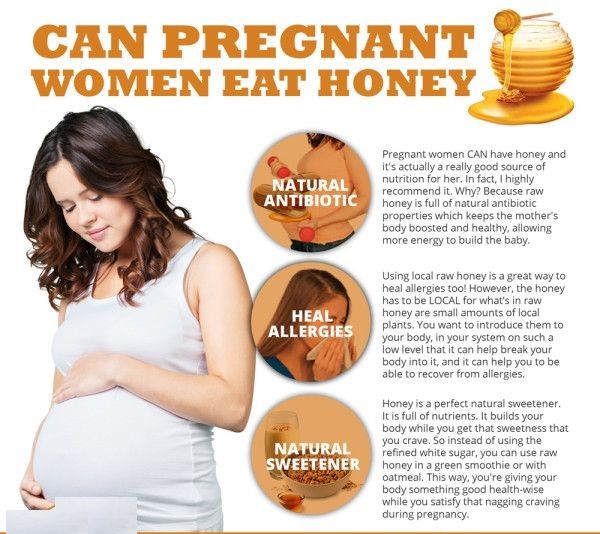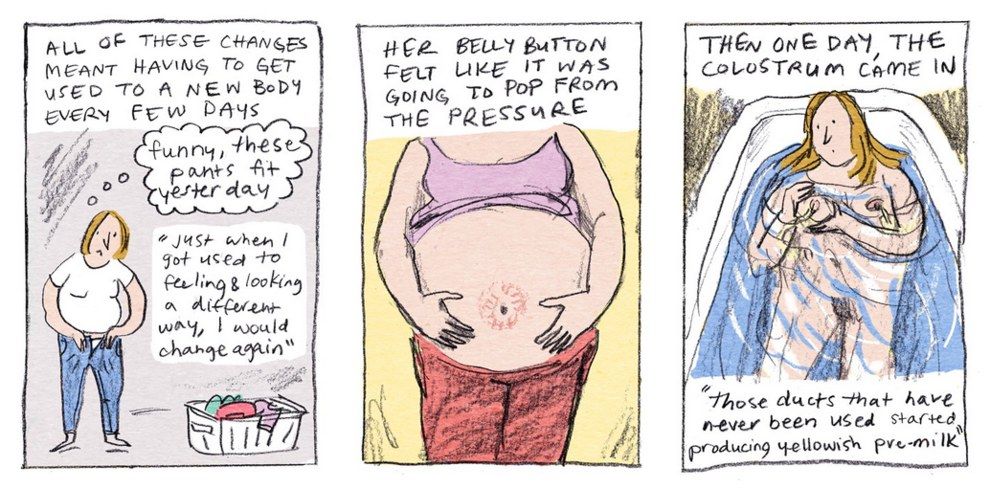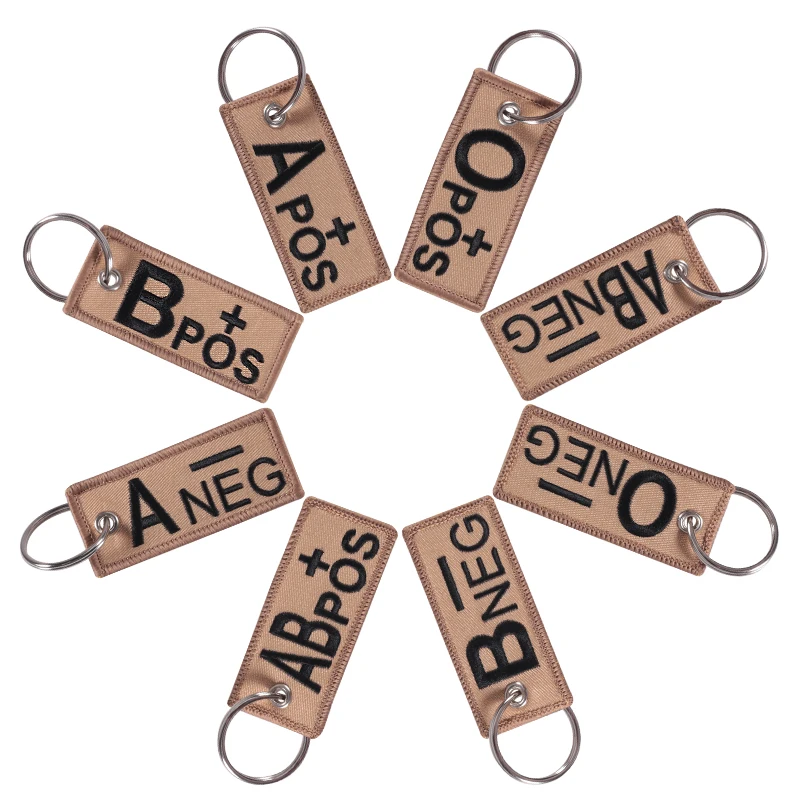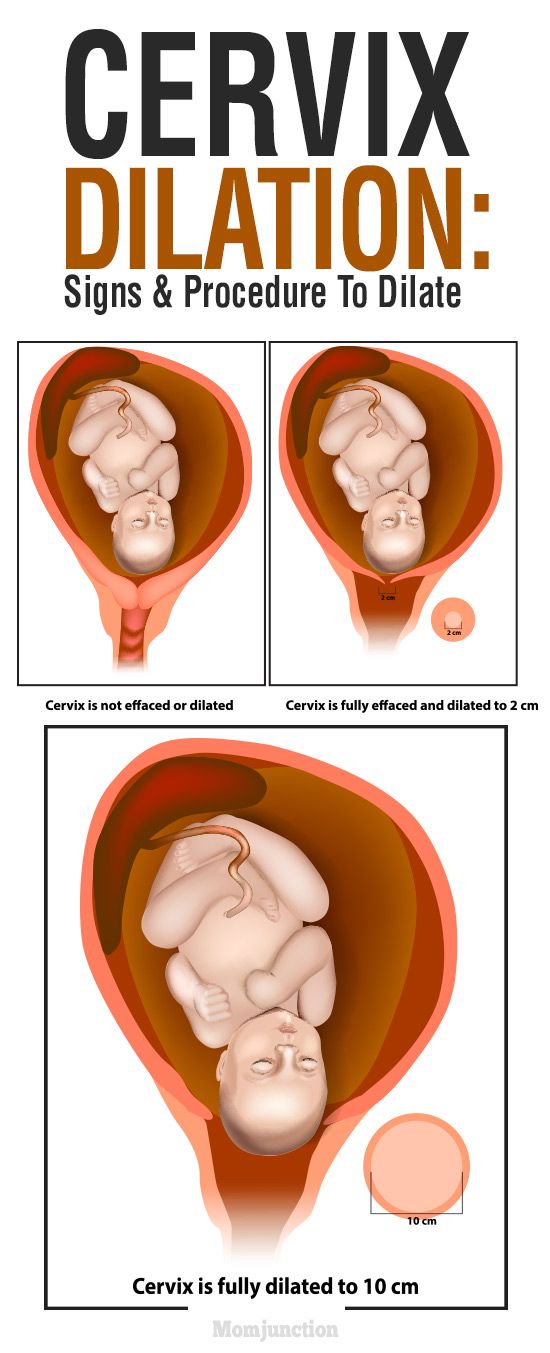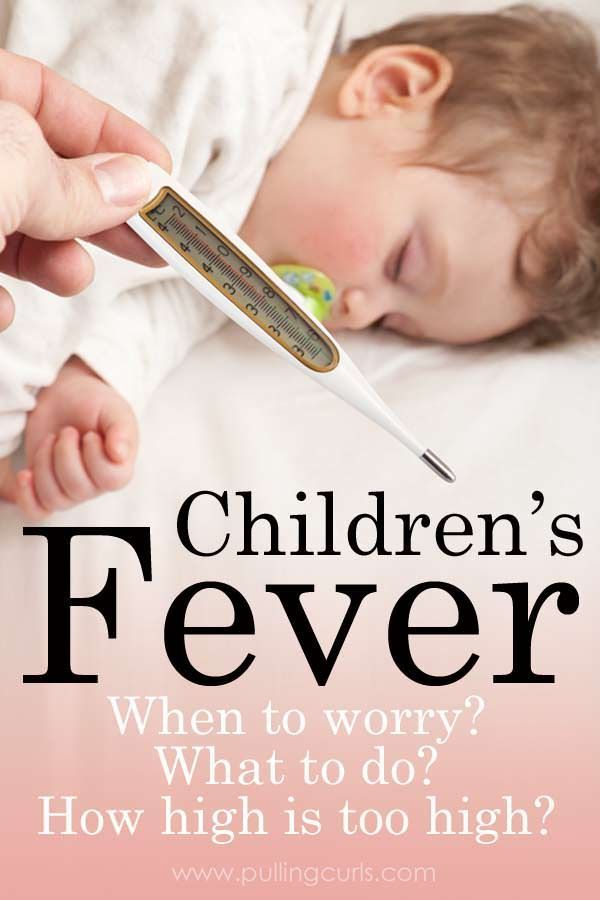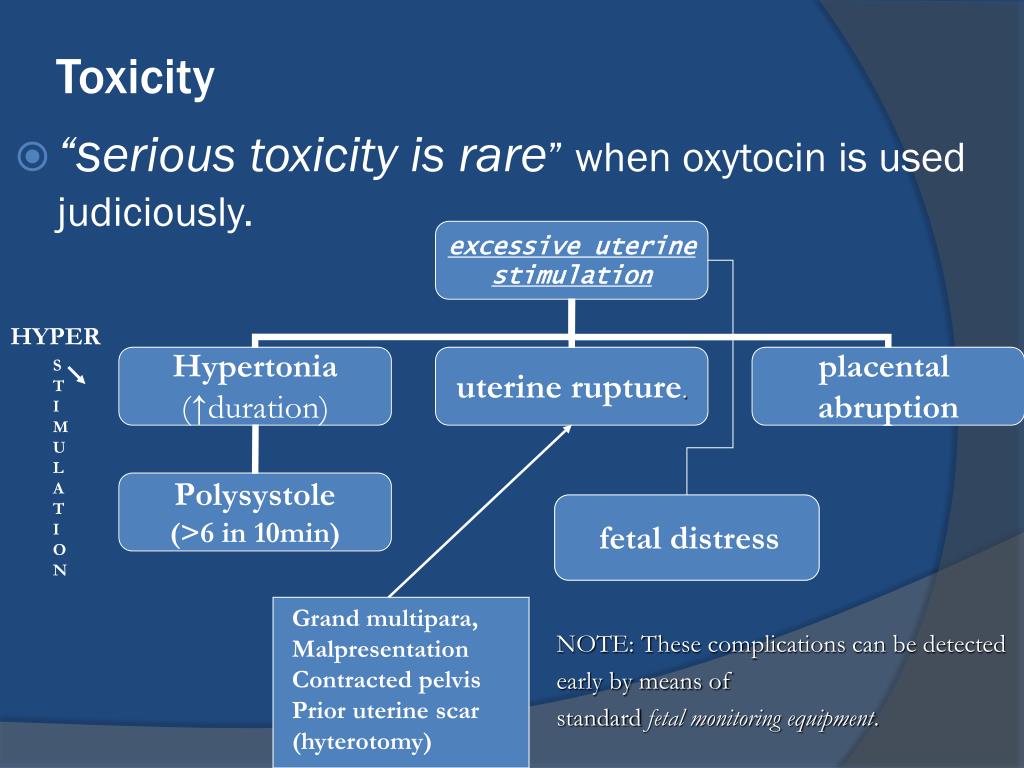What kinds of fish can a pregnant woman eat
Can pregnant women eat fish? Your easy guide to eating fish
Now the question is: are pregnant women eating enough fish or seafood during pregnancy?
The USDA/HHS’s Dietary Guidelines for Americans recommend eating a variety of cooked seafood 2-3 times each week during pregnancy. But the average pregnant woman in the U.S. eats less than half a serving. That’s a huge problem that we all need to do our part to help solve.
It’s critically important for moms-to-be to eat more seafood because the combination of nutrients found in fish are in especially demand by your body during pregnancy.
So, What Are the Benefits of Eating Fish During Pregnancy? What Kind of Nutrients Do Fish Contain That Are Important For Pregnant Women?Fish contain the a variety of nutrients that are especially important for moms-to-be:
Omega-3 DHA (“Omega-3’s”)The omega-3 fatty acid docosahexaenoic acid, or DHA, is a special kind of healthy fat that helps build your baby’s brain and eyes. During the last trimester, a fetus’s brain and nervous system rapidly develops, requiring about 65 mg/day of DHA. This heightened demand for DHA continues until your child reaches two years of age. Omega-3 DHA also nourishes moms’ brain health, and may even prevent depression during and after pregnancy.
It’s critical for women to eat fish during pregnancy because its he most widely available dietary source of omega-3 DHA there is. Fish like salmon, canned or pouch tuna, sardines, trout, and anchovies are rich in omega-3 DHA. There are other nutritional sources of DHA, including milk and eggs that have specifically had DHA added to them, also called DHA fortified milk or DHA fortified eggs.
ProteinProtein is needed to build a baby’s skin, muscle, hair, and bones. Moms-to-be need about 25 extra grams of protein every day to support their growing baby.
Fish and shellfish, eggs, beans, peanut butter, and dairy like cottage cheese are all good sources of protein.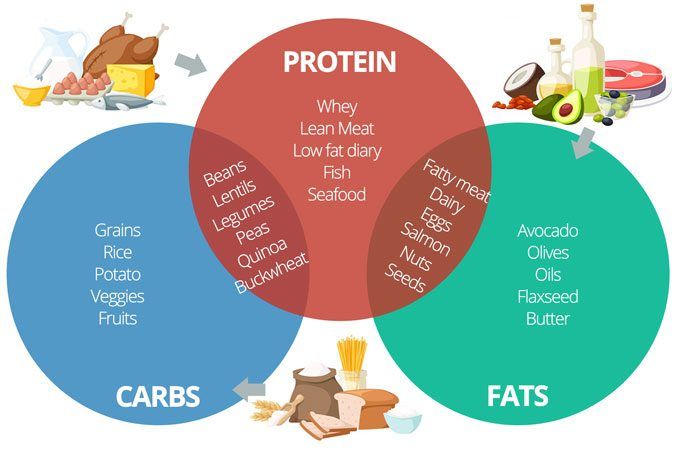 Fish has the added benefit of being lower in bad fats than some other animal sources of protein, like red meat.
Fish has the added benefit of being lower in bad fats than some other animal sources of protein, like red meat.
Vitamin D helps the body absorb nutrients like calcium, which builds a baby’s bones, teeth, heart, nerves, and muscles, while also keeping mom’s bones and teeth strong. Vitamin D may also help lower your chance of getting high blood pressure during pregnancy.
Your body actually makes Vitamin D, in a process linked to the amount of sunlight you absorb each day. That’s why younger and older people, people with darker skin, and people with limited sun exposure are at greater risk of Vitamin D inadequacy or deficiency.
You can get Vitamin D from dietary sources to make up for any shortfall produced by your own body, but the dietary sources of Vitamin D are relatively limited. And at the top of the list are fish like salmon, shrimp, and canned or pouch tuna. Other options include milk or orange juice specifically fortified with added Vitamin D.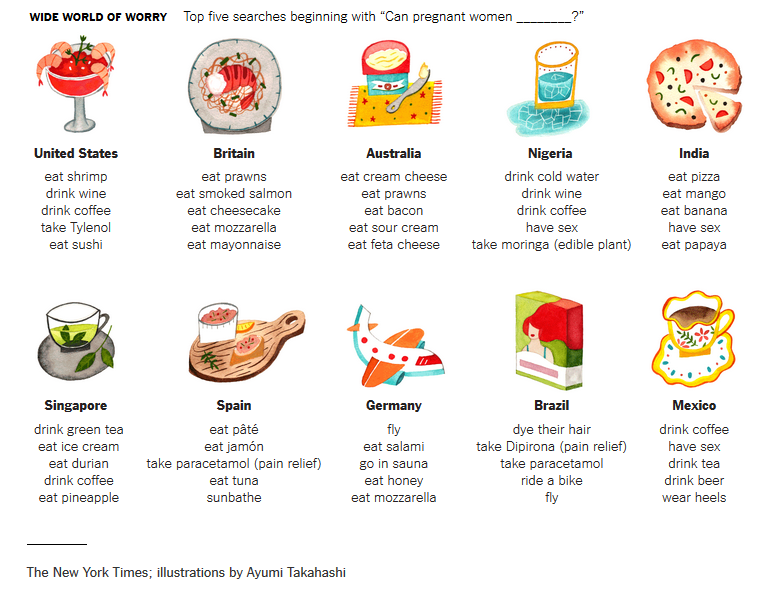
Iron helps carry oxygen from a mom’s bloodstream to her baby. Iron also helps keep moms’ immune system strong. Most moms-to-be begin their pregnancies without enough iron in their diets.
Many people think of meats like turkey, beef, and chicken as top sources of iron. However, seafood like clams, halibut, crab, shrimp, and cooked oysters are also iron-rich. Vegetarian sources include red and kidney beans.
So, What Are The Healthiest Fish To Eat During Pregnancy? Are There Any Fish To Avoid During Pregnancy?A quick internet search reveals that confusing “top fish to eat” lists abound, but the truth is that the best advice on fish and seafood for moms-to-be is pretty simple. Pregnant women can and should be enjoying a lot of different kinds of fish and other seafood. Popular types like catfish, clams, cod, crab, pollock, salmon, scallops, shrimp, tilapia, trout, and canned tuna are all safe fish, healthy fish to eat during pregnancy.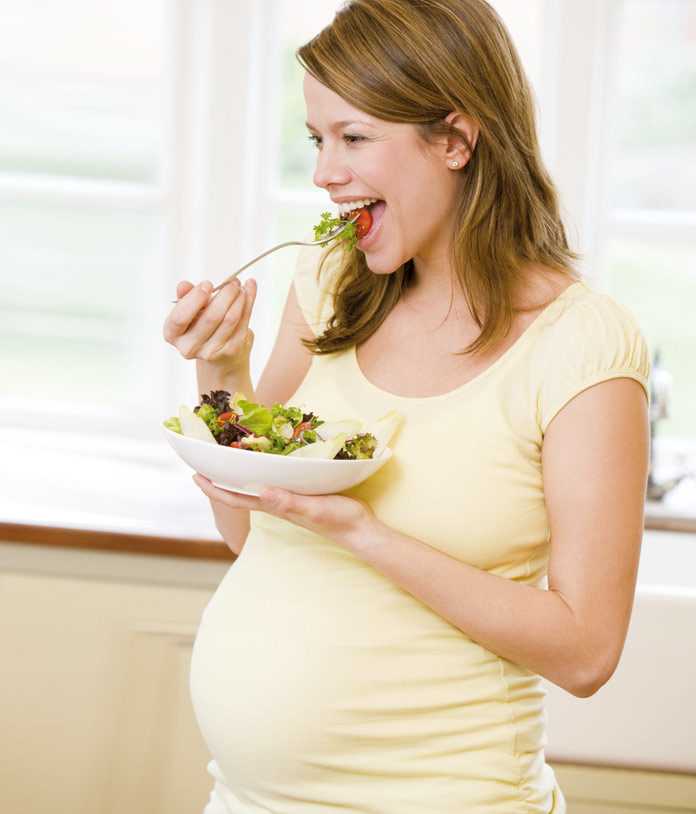 Just like it’s best to eat a variety of fruits and vegetables, the recommendation is to eat a variety of seafoods to get the full range of nutrients found in different types of fish and shellfish. So moms-to-be should generally just eat a variety of the types of seafood they like most – they should just do it more often.
Just like it’s best to eat a variety of fruits and vegetables, the recommendation is to eat a variety of seafoods to get the full range of nutrients found in different types of fish and shellfish. So moms-to-be should generally just eat a variety of the types of seafood they like most – they should just do it more often.
All types of seafood – frozen, fresh, and canned – count. It’s easy to forget that fish is found in three places in the grocery store. The seafood counter, of course, but also the canned goods aisle and the freezer section. It doesn’t matter which one women choose – all contain the nutrients, like omega-3s, that make seafood such a smart choice. So stock the kitchen with a variety of seafood options so there is a go-to no matter what sounds good. To give just two examples:
Canned TunaCanned tuna is one of the most affordable, available forms of omega-3s in the American diet. And canned tuna is a great choice for fish to eat while pregnant. There are two primary types of canned tuna, white (also known as albacore) and light. Women who are pregnant or breastfeeding can eat all types of tuna, including white (albacore) and light canned tuna as part of a variety of 2-3 servings of seafood each week.
There are two primary types of canned tuna, white (also known as albacore) and light. Women who are pregnant or breastfeeding can eat all types of tuna, including white (albacore) and light canned tuna as part of a variety of 2-3 servings of seafood each week.
Crab is a great choice for moms-to-be because it has a mild, sweet flavor and is rich in omega-3s. Consider adding crab or tuna to dishes you already love like macaroni and cheese.
Are There Any Fish to Avoid During Pregnancy?There are only a handful of fish high in mercury to avoid, and the easy part is that most Americans rarely eat these fish anyway. They include shark, swordfish, king mackerel, tilefish, marlin, orange roughy, and bigeye tuna (found in some sushi).
Essentially all seafood includes traces of mercury in addition to beneficial nutrients like omega-3s. Scientists have closely studied the health effects on children when their moms eat fish during pregnancy.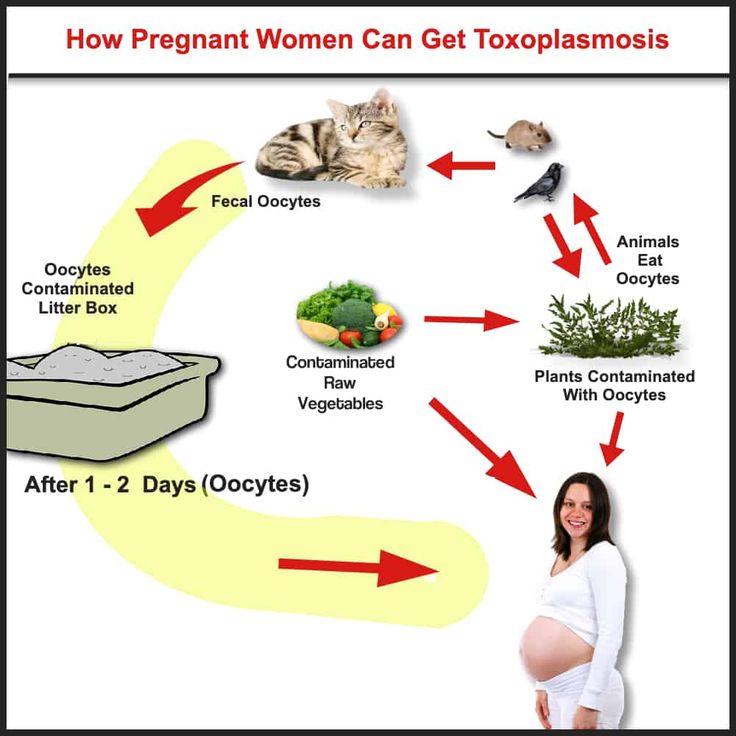 They repeatedly conclude that eating seafood 2-3 times each week during pregnancy boosts babies’ brain development. The World Health Organization points out that avoiding seafood may actually mean missing out on the best possible brain development for babies.
They repeatedly conclude that eating seafood 2-3 times each week during pregnancy boosts babies’ brain development. The World Health Organization points out that avoiding seafood may actually mean missing out on the best possible brain development for babies.
To reduce the chance of getting sick from food, women shouldn’t eat any raw meats during pregnancy. Sushi is tasty, nutritious and fun; just make sure to stick with cooked types during pregnancy. There are many types of cooked sushi—just look for the “cooked” sticker when shopping in the grocery store, or ask the server when dining out.
Can Breastfeeding Women Eat Fish?Pregnant women who are already in the groove of eating seafood should keep it up after the baby arrives. The omega-3s found in seafood make their way to breastmilk and help nourish babies’ rapidly growing brains. Cooking and preparing many kinds of fish is also fast, and so fits well into busy new moms’ lives. Fish-loving parents set a positive example for their little one, who will be eating solid foods in just 4-6 months.
Fish-loving parents set a positive example for their little one, who will be eating solid foods in just 4-6 months.
Whether you’re pregnant or breastfeeding, it may make sense to eat several mini-meals instead of a big meal. Consider thinking of seafood as an add-on to mini meals and snacks morning, noon, and night. Combine canned tuna, a hard-boiled egg, and cheddar cheese for a mid-morning meal. Top tilapia with mango salsa and wrap in a corn tortilla for lunch. Mix canned salmon with olive spread and eat with a couple slices of a French baguette for a snack. Toss pasta with sundried tomatoes and shrimp for a quick dinner. Visit Dish on Fish for more ways to get at least two seafood meals each week.
So, can pregnant women eat fish you ask? YES.
Author’s Note: We used the words “seafood” and “fish” interchangeably.
Fish To Avoid And Fish To Eat During Pregnancy
With pregnancy comes many lifestyle changes—you’re about to be responsible for a new human being, and on top of that, you’re likely trying to prioritize healthy choices to benefit both you and baby.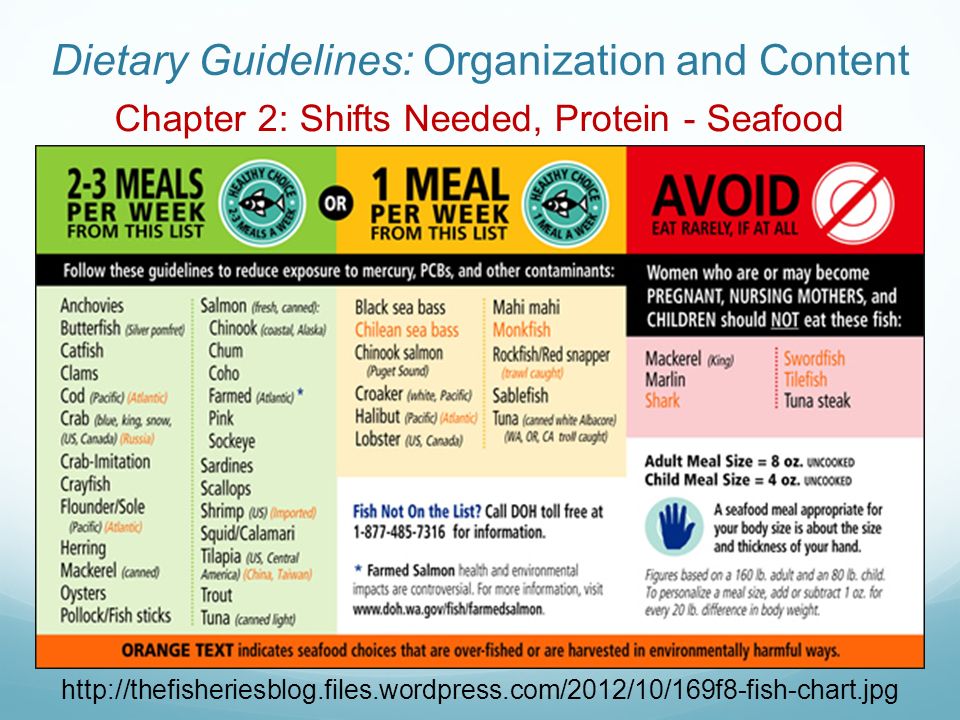 If you’ve started to read up on lists of what you should or shouldn’t eat, you may be confused about where—or if—fish and other kinds of seafood can fit within your diet. We’re here to tell you that with a few exceptions, fish can and should be part of a healthy diet even when you’re expecting.
If you’ve started to read up on lists of what you should or shouldn’t eat, you may be confused about where—or if—fish and other kinds of seafood can fit within your diet. We’re here to tell you that with a few exceptions, fish can and should be part of a healthy diet even when you’re expecting.
Why Is Fish A Concern In The First Place?
Advice about avoiding all fish during pregnancy is little more than fishy fiction. Most of the concerns stem from the fact fish contain mercury, a metal that collects in oceans, lakes and rivers and is acquired by fish from the water and by eating other fish. Being exposed to mercury in the womb is associated with many negative developmental consequences, which may lead pregnant women to believe that they should swear off seafood for nine months. Luckily, many popular types of fish in the United States, like salmon, tuna and tilapia, have such low levels of mercury that they can be eaten a few times a week without risk of harming an unborn child.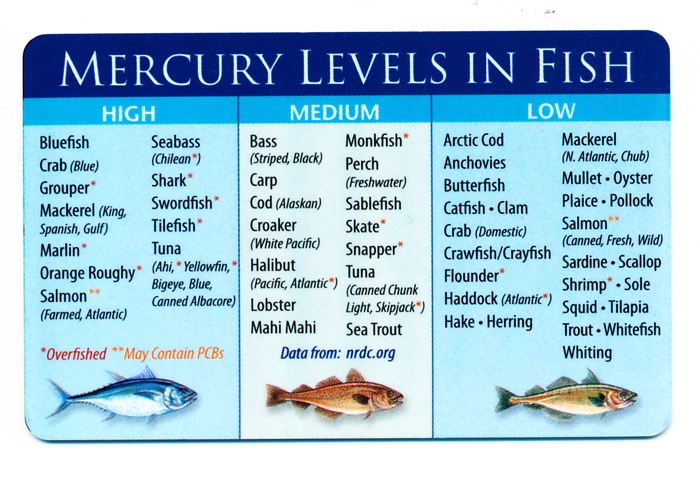
The 7 Fish You Should Avoid
There are, however, seven types of fish that should be completely avoided during pregnancy) because they are known to contain the highest levels of mercury:
- Bigeye tuna
- Tilefish
- Shark
- Swordfish
- Marlin
- Orange roughy
- King mackerel
What About Sushi?
If you’re a sushi lover, it’s best to stick to veggie options or rolls with cooked seafood for now. Food safety and medical experts recommend avoiding raw fish during pregnancy, since the weakened immune system of expecting mothers may increase risk for foodborne illness.
Nutritional Benefits Of Fish
Aside from these exceptions, incorporating fish into your diet while pregnant provides many nutritional benefits. Fish provides many key nutrients for pregnant and breastfeeding women as well as growing babies, including protein. Protein is crucial for a baby’s growth, especially during the second and third trimesters. Pregnant women should eat at least 70 grams of protein per day.
Pregnant women should eat at least 70 grams of protein per day.
Fish is also a source of healthy fats. It is recommended that everyone—not just pregnant women—keep their fat intake between 20 to 35 percent of total calories per day. And some types of fat are more beneficial to health than others. For example, docosahexaenoic acid (DHA) is an omega-3 fatty acid found in high quantities in salmon. DHA is important for a baby’s fetal growth and development, particularly in the eyes and brain. Pregnant women should aim to consume 200 to 300 mg of DHA each day, or about the amount found in ¾ ounce of salmon, 1 ½ ounces of sardines or 2 ounces of rainbow trout.
Vitamin D, which helps us absorb calcium and is important for immune function and brain health, is also found in fatty fish like salmon and tuna. Fish is a source of easily absorbable iron (called “heme” iron), a nutrient of particular importance during pregnancy; since pregnant women have an increased amount of blood in their bodies, more iron is needed to support a healthy blood supply for both mom and baby.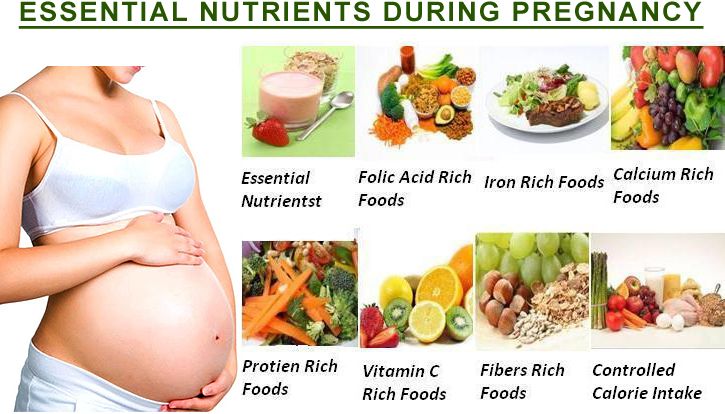
Here’s our infographic with more details:
Image: Lindsey Balbierz
There’s nothing fishy about eating (most types of) fish during pregnancy! Fish contributes to a healthy eating style and provides many important nutrients to keep both mom and baby healthy. As encouraged by the 2015-2020 Dietary Guidelines for Americans, pregnant and breastfeeding women can safely eat seafood 2 to 3 times per week. As long as you avoid raw seafood and fish that are higher in mercury, expecting moms can feel free to dive into nutritious seafood meals.
For more information on nutrition during pregnancy, check out our Healthy Eating During Pregnancy resource.
Published May 2018
Please note: The Bump and the materials and information it contains are not intended to, and do not constitute, medical or other health advice or diagnosis and should not be used as such. You should always consult with a qualified physician or health professional about your specific circumstances.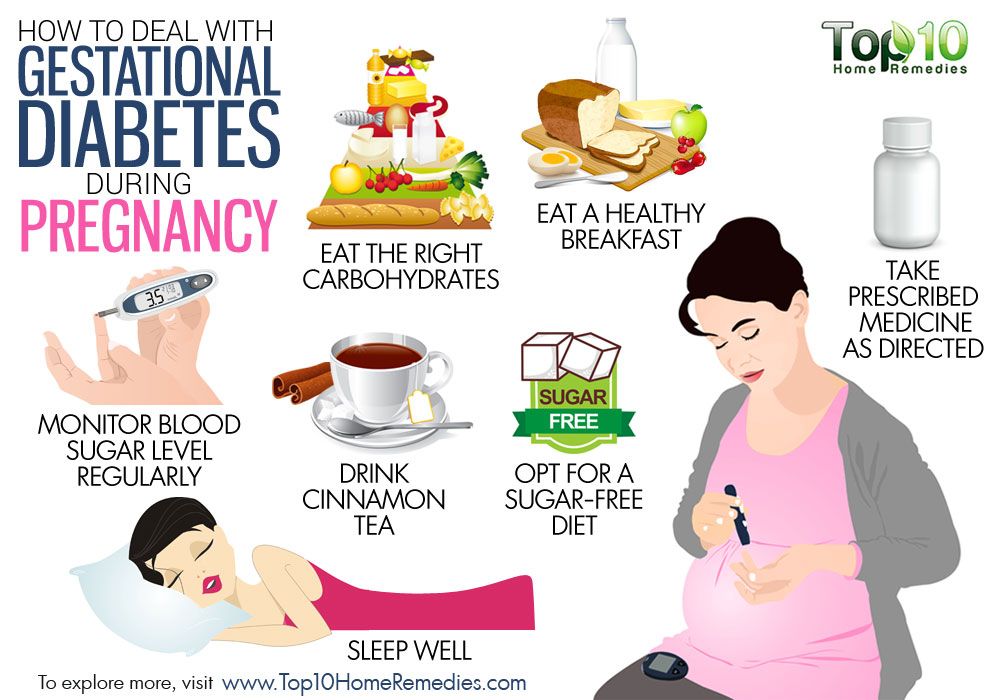
save article
Next on Your Reading List
Is it possible to eat seafood, caviar and fish during pregnancy
Seafood is good for health not only for small children, but also for adults. Many women want to know if it is possible to eat seafood and fish during pregnancy or breastfeeding? It is allowed to eat only fresh, high-quality and thermally processed fish. Seafood should be present in the diet of every pregnant woman. The composition of fish contains many useful substances that have a positive effect on the health and development of the fetus. Be sure to find out which fish products are allowed to be consumed and which are prohibited.
Why is fish useful for pregnant women?
Various studies were carried out at Harvard Medical School. It has been proven that women who have eaten fish during pregnancy have children with a better level of speech and intellectual development.
It is necessary to include up to 450 grams of fish in the diet and consume it 3-4 times a week.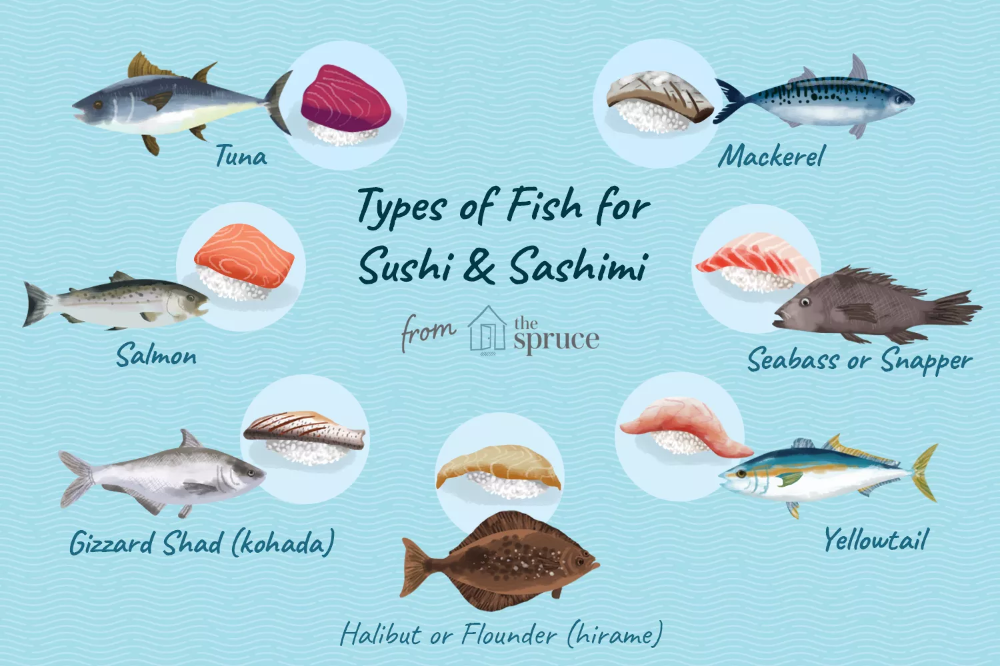 Pregnant women need to eat separately 100 gr. seaweed. The composition of fish and seafood contains a huge amount of nutrients and a high percentage of iodine.
Pregnant women need to eat separately 100 gr. seaweed. The composition of fish and seafood contains a huge amount of nutrients and a high percentage of iodine.
Benefits of fish products:
- improves thyroid function;
- phosphorus promotes the absorption of vitamin D in the body;
- zinc, protein and iron have a positive effect on the development of the child;
- Omega-3 acids allow the baby's brain to develop;
- restores cells and normalizes blood pressure;
- prevents postpartum depression and mood swings.
Fish should be in the diet of every pregnant woman. Seafood should be consumed within 9months and during lactation.
What kind of fish and seafood can pregnant women eat?
It is recommended to consume river fish, as it contains much more useful substances. It is desirable for pregnant women to eat hake, flounder, sea bass, cod, dorado, catfish, perch, salmon and catfish. If the fish is of fatty varieties, it is necessary to consume it no more than 1-2 times a week.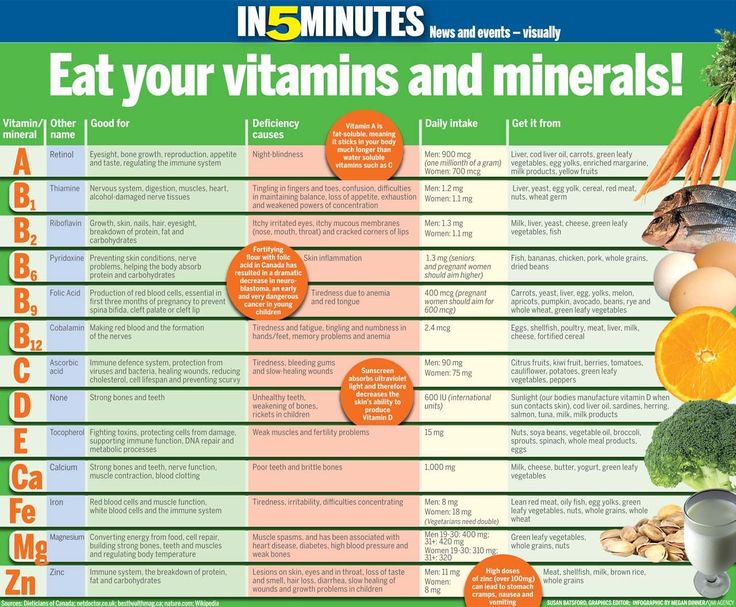 You can cook butterfish, sardines, salmon, mackerel. It is allowed to use seafood such as shrimp, rapana, scallops, squid. You can eat black or red caviar, as it strengthens the immune system, increases hemoglobin in the blood and activates the brain.
You can cook butterfish, sardines, salmon, mackerel. It is allowed to use seafood such as shrimp, rapana, scallops, squid. You can eat black or red caviar, as it strengthens the immune system, increases hemoglobin in the blood and activates the brain.
Which fish products should not be consumed while pregnant?
Do not eat raw fish during pregnancy. You need to give up sushi, tartare, fish carpaccio. During pregnancy, fish products should be consumed in finished form. You can make dishes from shark, tuna, king mackerel, halibut. Such fish is allowed to be consumed no more than 1 time per month.
Can pregnant women eat shellfish?
Squid - can be eaten in small quantities. They can increase appetite and positively affect the work of the stomach. Vitamins E, C, B1, B2, B6, which are part of the squid, have a good effect on the development of the unborn child.
Mussels during pregnancy can be included in the diet. They are easily and quickly absorbed by the body.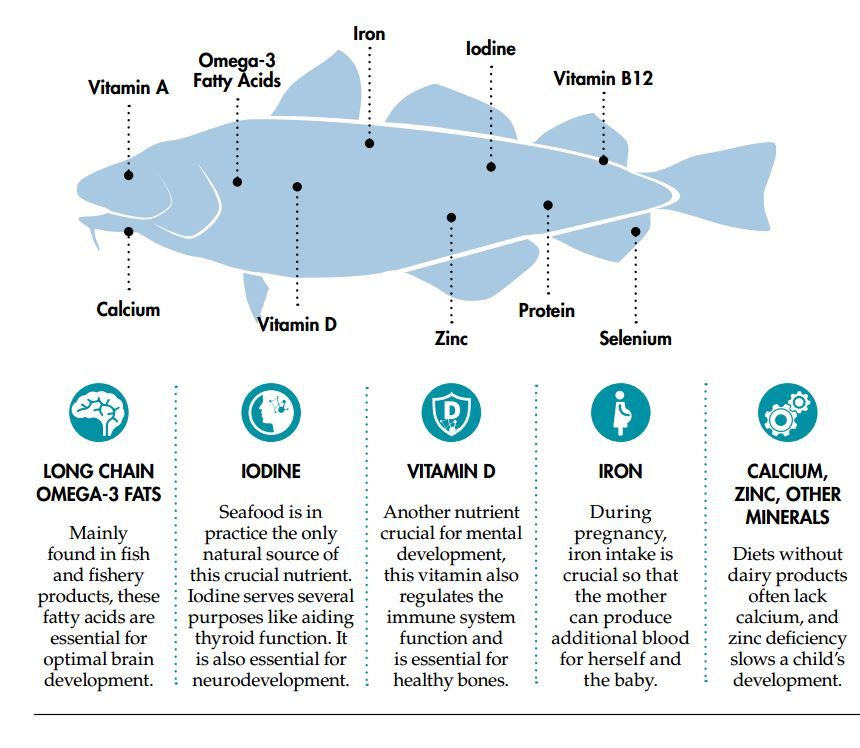 The composition contains easily digestible proteins, minerals, amino acids. It takes at least 15 minutes to prepare the product.
The composition contains easily digestible proteins, minerals, amino acids. It takes at least 15 minutes to prepare the product.
Oysters are healthy seafood, as they contain many trace elements and zinc, which positively affects the functioning of the cardiovascular system. You can eat shellfish only in finished form and in the 2nd trimester.
Shrimp is a healthy and safe seafood that can be used during pregnancy and is an auxiliary product in improving the condition of nails, hair and skin. You can use them 1-2 times a week. It is allowed to add shrimp to soups, salads, pastas and risotto.
Fish and seafood during pregnancy
Nutritionists recommend eating seafood at almost any age, as they are rich in trace elements, vitamins and minerals. In this regard, natural questions arise: what kind of fish can pregnant women eat? And will seafood harm the unborn child?
First of all, the products must be fresh, of high quality and thermally processed.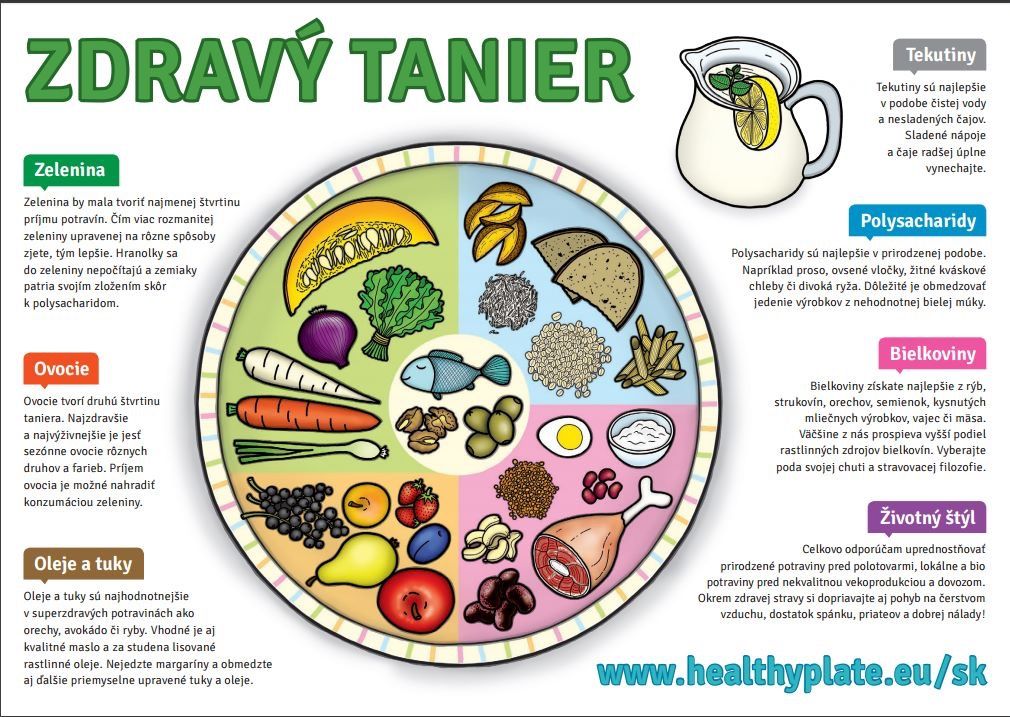 These three factors are most important in the preparation of the diet of the expectant mother.
These three factors are most important in the preparation of the diet of the expectant mother.
But there are a few more criteria that you should be guided by when choosing marine products for pregnant women.
Why is fish so useful during pregnancy?
Red fish during pregnancy has a positive effect not only on the development of the fetus, but also on the condition of the expectant mother. This is due to the content in such fish of a large number of useful trace elements that are easily absorbed by the gastrointestinal tract.
Researchers at Harvard Medical School have proven that pregnant women who regularly eat fish meals during the first and second trimesters do not have to worry about the level of the child's intellectual development, since fish contains essential omega-3 and omega-6 fatty acids.
But don't overdo it. Eating exclusively fish products during the entire period of pregnancy is not the best solution. The ideal option is to include seafood in the diet several times a week.
Restrictions for eating fish and seafood during pregnancy
Doctors recommend that pregnant women eat seafood in limited quantities - no more than 300 grams 2 to 3 times a week. Also, about 70-100 grams of seaweed should be added to the menu every day.
Nori seaweed is also very beneficial. Therefore, nutritionists advise connoisseurs of Asian cuisine to supplement their diet with sushi 1-2 times a week.
Useful properties of fish and seafood during pregnancy:
-
All seafood contains a high percentage of iodine. It has a positive effect on the regulation of the thyroid gland.
-
Phosphorus, which is also present in fish, promotes the rapid absorption of vitamin D by the human body.
-
Seafood is also rich in zinc, iron and low-calorie, easily digestible protein. All these substances help the full development of the fetus.
-
Omega-3 acids influence the formation of the child's brain. In addition, these substances are useful for the expectant mother herself.
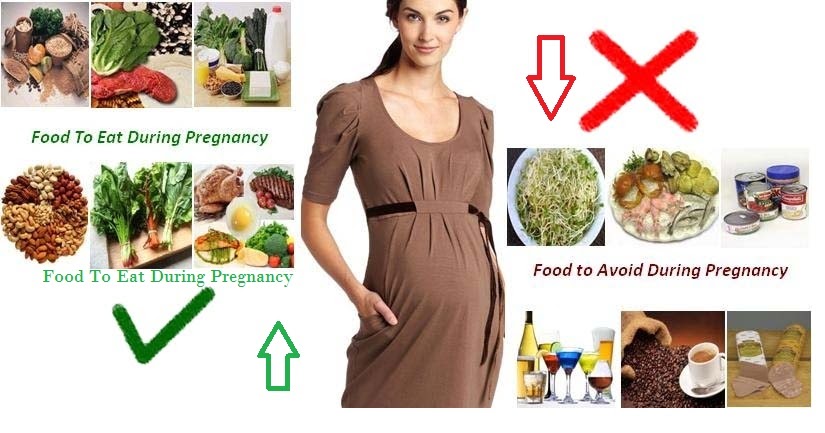 Their absorption by the body prevents the risk of developing postpartum depression.
Their absorption by the body prevents the risk of developing postpartum depression.
Thus, if you doubt whether it is possible for pregnant women to eat sushi, we unequivocally answer: it is not only possible, but also necessary. Sushi should be consumed not only during the entire period of gestation, but also during the period of feeding the baby.
But you need to be extremely careful and trust only trusted establishments where high-quality fresh fish is used for cooking.
What kind of fish is allowed?
Sushi during pregnancy is useful primarily due to the fact that red fish, nori and fresh vegetables are used for its preparation. Among the most useful types of sea fish recommended for pregnant women are:
-
trout,
-
salmon,
-
pink salmon,
-
eels,
Healthy seafood also includes squid, scallops, rapana and shrimp. Sometimes they make delicious salads and dressings.